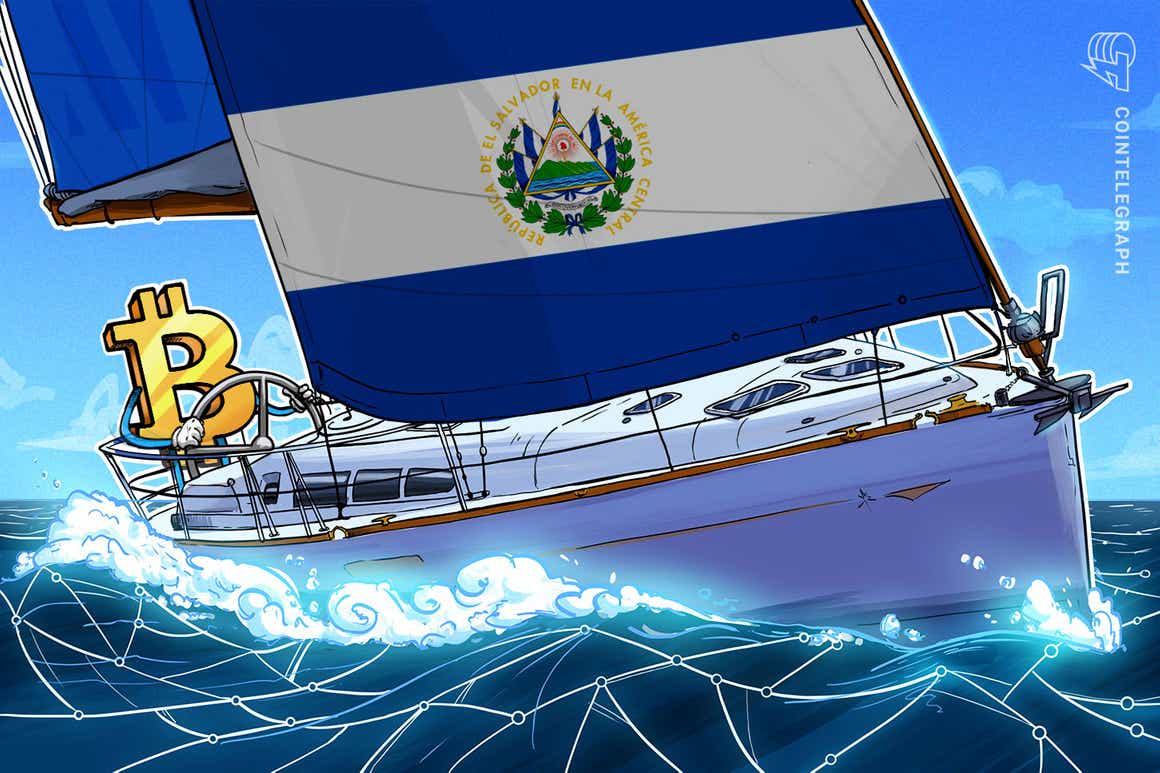El Salvador Adopts Bitcoin
El Salvador adopted Bitcoin (BTC) as legal tender over five months ago on Sept. 7, 2021. Bitcoiners around the world have been watching with intent as the president of El Salvador, Nayib Bukele, attempts to “orange-pill” an entire nation.
The president regularly buys the dip, has promised a low-tax Bitcoin “Citadel” in the form of Bitcoin City, and is exploring renewable energy BTC mining using volcanoes.
The International Monetary Fund Pushes Back
The International Monetary Fund’s board urged El Salvador to strip Bitcoin of its status as legal currency due to its large risks, highlighting a major obstacle for the nation’s efforts to get a loan from the institution.
El Salvador last year sought a $1.3 billion IMF loan, but talks have been stymied by the lender’s Bitcoin concerns, and any program would need to be approved by the board.
IMF executive directors, who represent the fund’s 190 member nations, highlighted Bitcoin’s risks to “financial stability, financial integrity, and consumer protection” and fiscal contingent liabilities, the fund said in a statement Tuesday. They urged the authorities “to narrow the scope of the Bitcoin law by removing Bitcoin’s legal tender status.”
What Is it Like For Those Living There?
But what is it like for those living day to day in the smallest Central American country, known as “the land of volcanoes”? Moreover, what’s it like trying to live off only Bitcoin?
An Italian couple, Rikki and Laura, have done just that. Rikki is a Bitcoin podcaster and human rights activist, active in the space since 2016. Laura works as a community manager in the blockchain space and has been laser-focused on crypto since 2019.
After the Bitcoin Law was passed, Laura came up with the idea of traveling all around El Salvador for 45 days. The challenge? Living off only Bitcoin. No bartering, no euros and certainly no U.S. dollars.
Their experiences offer fascinating insights into the country’s history, its charming landscapes and, of course, its laser-eyed Bitcoin future. The stories of their travels can be read in English and Italian, and their podcast is called Bitcoin Italia Podcast.
On the flip side, Rikki and Laura also stumbled across weighty challenges arising from being orange-coin-only, including gaps in education and difficulties transacting with Bitcoin. They chatted with Cointelegraph via video call from Santa Ana, a coffee-rich region of El Salvador, on Jan. 24.
Do you accept Bitcoin? Oh, you don’t? Ciao!
In San Salvador, lots of places accept Bitcoin — from McDonald’s to Starbucks to mom-and-pop stores. In El Zonte, known as “Bitcoin Beach” — the birthplace of the Bitcoin Law — most vendors advertise that they accept BTC. However, off the beaten track, Bitcoin is poorly understood and sometimes misconstrued as the state-sponsored wallet, Chivo Wallet.
So, which county is next?
Paraguay, Panama, Mexico, Venezula, Brazil?
Paraguay
is a landlocked nation, often in the shadow of its wealthier neighbours, has already declared itself intent on forming an alliance of financial inclusion with other South American countries, and Bitcoin appears to be high on the government’s agenda.
Congressman Carlos Rejala is expected to pass a bill in July through Asuncion with the aim of attracting cryptocurrency companies to Paraguay. If passed, it would only take a second bill in October to have Bitcoin officially recognised.
“As I was saying a long time ago, our country needs to advance hand-in-hand with the new generation,” commented Congressman Rejala last week in response to El Salvador’s move.
Panama
The tiny country of Panama has always punched well above its weight in terms of economy, thanks largely to its geography which makes it the link chain between south and central America.
It has played a key role in the world’s shipping movements with a monumental feat of engineering in the shape of the Panama Canal. Although opened in 1914, Panama City was only given control of the 50-mile stretch of water in 1999. This alone, though, makes it influential on the world stage.
Not to play down El Salvador’s bold step, but if Panama became the next Bitcoin nation, the world really would sit up and take notice.
Mexico
Mexican politicians are keen to move the country and its economy forward as much as possible. Legislation over cannabis legalisation in the last couple of years have paved the way for wider talk about Bitcoin.
Early last year, there had been discussion for proposals of a national cryptocurrency for Mexico, but the balance of thinking has now shifted towards Bitcoin – particularly after El Salvador’s politicians began the process of adoption at the start of 2021.
Talks are in the pipeline, and it should be just a matter of time before an agreement is in place to bring a motion for discussion to the Mexican parliament.
Petromoneda had been touted as the answer to all the troubled nation’s money woes but, as many observers at the time predicted, it never really lived up to expectations.
On paper, Venezuela should be one of the richest countries on the planet. Its gold and oil reserves would be the envy of the world had it all not been so catastrophically mismanaged.
Venezuela’s fiat situation is dire, to say the least. But it did make an effort with crypto, therefore it has form, infrastructure and a willing population to make the step into Bitcoin which would provide a tried-and-tested cryptocurrency solution.
If any country was ready to move into legal tender territory with Bitcoin, then Venezuela would be it. Some effort from the government could quickly drive this one over the line.
Many elected ministers within the corridors of power are also quite young, with a handful of tech entrepreneurs taking seats.
Again, Brazil is a country which has made its desires known about the prospect of a national cryptocurrency, but officials in Brasilia are said to be keen on the idea of being part of a ‘Bitcoin conglomerate’ stretching across South America.
It is believed bills are already being drafted, and could be brought before government by the end of the year.

